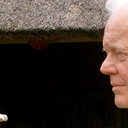Intra-specific variation in the inhibitory effects of Thymus vulgaris (Labiatae) monoterpenes on seed germination.
Atslēgvārdi
Abstrakts
The ecological role of plant secondary compounds has received a great deal of attention yet little is known regarding variation in the ecological significance of different compounds produced by a single species. This is particularly pertinent to species where variation in compound presence is under genetic control. In this study we have quantified variation in the inhibitory effects of the six dominant monoterpene oils produced by different genotypes (or chemotypes) of Thymus vulgaris on achene germination of an associated species (Brachypodium phoenicoides), and seeds of T. vulgaris itself, in controlled experimental conditions. The experiments involved the germination of seeds of the two species with crushed leaves or pure essences of the six chemotypes, i.e. four experimental trials. A significant inhibitory effect against B. phoenicoides was found for both crushed leaves and the range of concentrations of pure oils used in the trial. The two phenolic compounds had a greater effect than the non-phenolic leaves and pure oils. The significant differences between non-phenols and the controls declined faster over time for crushed leaves and low concentrations of the pure essences than did that between the phenolics and the controls. There was a significant inhibitory effect against the germination of T. vulgaris seeds for the crushed leaves and the pure oils, although the contrast between the non-phenols and the phenols was not significant. The effect of the different oils varied depending on the seed source of the thyme seeds used in the trial. This is suggested to be due to differences in the rates of outcrossing among the sampled populations. The effects of the oils on the associated species, B. phoenicoides, were not found to be greater than their effects on the germination of thyme seeds. The results are discussed in the context of a potential role for such inhibitory effects in relation to the onset of rainfall and suitable germination conditions.


